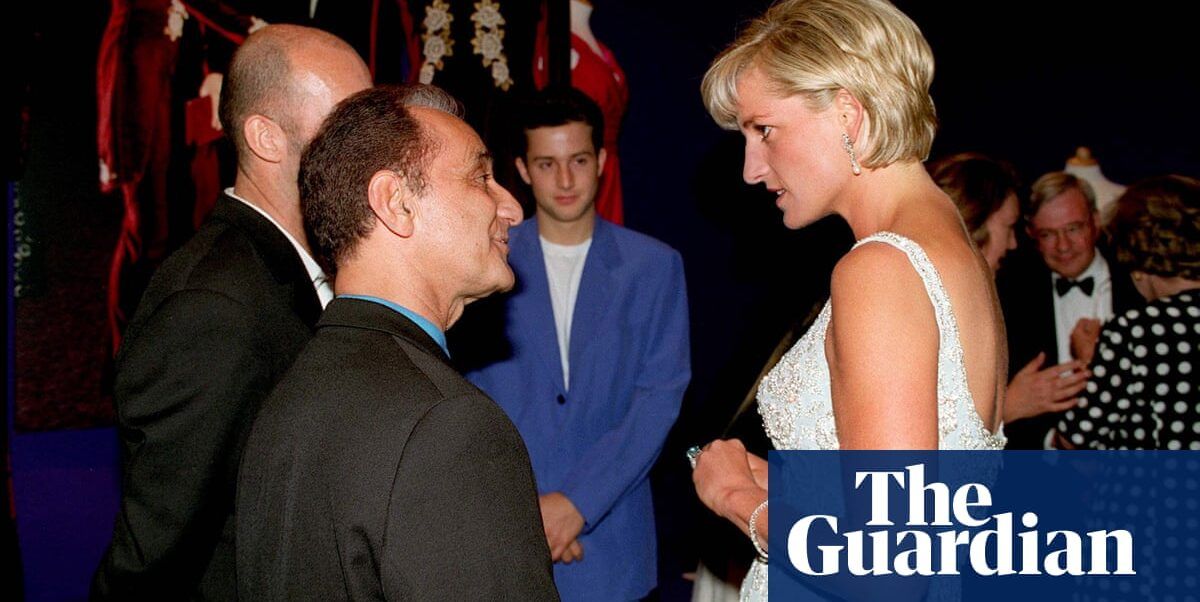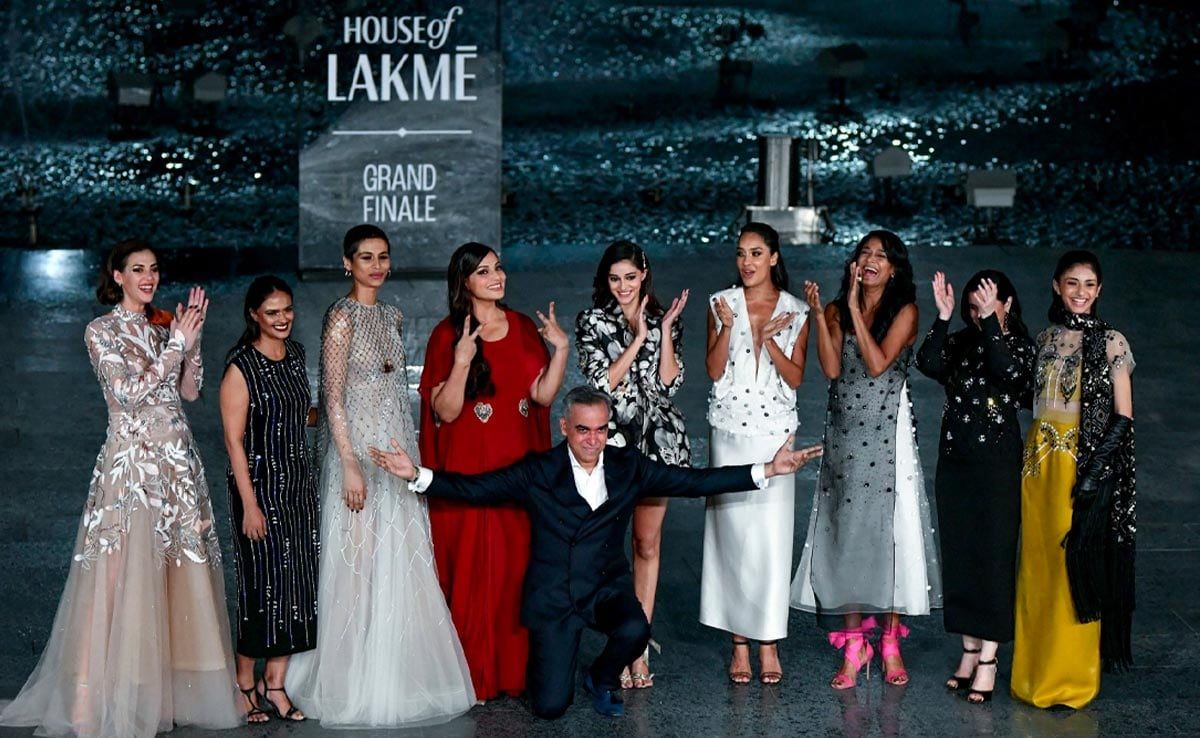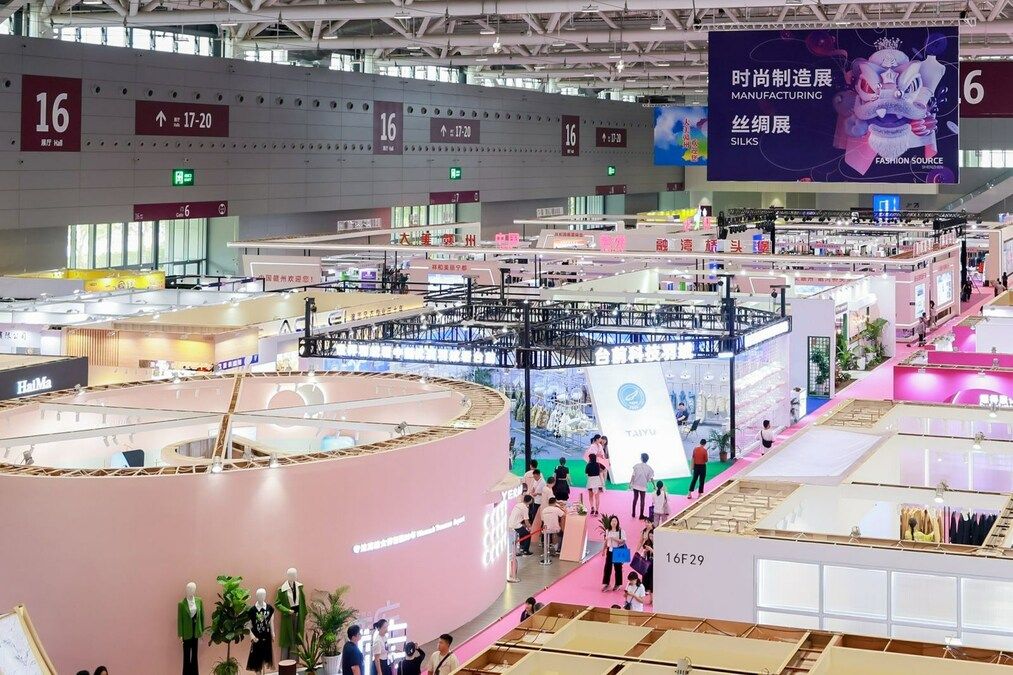The first Buckingham Palace fitting fashion designer David Sassoon ever did was a bridesmaid dress for the eight-year-old Princess Anne. “I had to go through the tradesmen’s entrance, and I was so disappointed – I thought I’d go through the main gates,” he says. Inside the palace, a liveried page whisked him up to the nursery. Prince Charles appeared, followed by the Queen. “I went backwards to bow and walked straight into the corgis’ water bowl,” says Sassoon, hopping up to demonstrate, “which upset all over my shoes”.
At 91, Sassoon is the only living designer featured in Fashion City: How Jewish Londoners Shaped Global Style, a new exhibition at the Museum of London Docklands that celebrates the contributions made by Jewish tailors, couturiers and retailers to the fashion industry. It’s an appropriate setting, at the heart of the East End, a trading hub where many Jewish migrants settled and made a living. The show features leading figures in their fields, among them master milliner Otto Lucas and wedding dress designer Netty Spiegel, as well as lesser-known pattern cutters and seamstresses. Plus, brands that pushed the boundaries of high fashion and dressed the rich and famous – among them the couture house that Sassoon turned into a roaring success.

Sassoon’s parents were Sephardi Jews, who came to the UK from Iraq on their honeymoon in 1925 and never left. One of six children, he was born in 1932, went to school in England (and, during the second world war, in Wales) and was always, he says, “totally unacademic”. “I wanted to be an actor, and I got a scholarship to Rada, but my father, who was very Middle Eastern, wasn’t happy about the idea. So he was persuaded that I would do the lesser of the two evils, which was fashion.” Sassoon had been interested in clothes from an early age, dressing up his younger sister in hand-stitched creations when he was just 11, and poring over his mother’s copies of Vogue.
It was at his graduate show at the Royal College of Art in 1958 that he met Belinda Bellville, who had founded the couture house Bellville et Cie, a society go-to known for its sophisticated designs, in Knightsbridge five years earlier. She was pregnant and looking for an assistant designer. “She offered me a temporary job, but I did manage to stay for 50 years and own the company,” Sassoon says. – the company became Bellville Sassoon to reflect his position as co-director in 1970, and he took over when Bellville retired in 1981.
During this time, he learned how to be what he calls a kind designer. “[Bellville] taught me to understand women, which a lot of male designers don’t.” That plunging necklines pose problems for bras, and not all women like to have the tops of their arms on show. In turn, from Sassoon, she gained customers beyond debutantes and duchesses – his connections included wealthy Sephardi and Ashkenazi clients – and learned to embrace the youth culture of the Swinging 60s. “I taught her to do the Twist, too.”
They came from different worlds: she was a socialite at home among the aristocracy; he was fresh from art school, tapped into modern trends, a member of the synagogue. He soon became aware of the Jewish involvement in the industry when he started meeting fellow designers and dealing with makers at luxury fabric companies and lace and embroidery houses. “Jewish traditions played an enormous part in the clothes I designed,” he says, mentioning the very many decorative dresses he made for barmitzvahs and Jewish weddings.
Sassoon and Belville worked together for 25 years, and after the introduction of ready-to-wear in 1963, produced four collections a year. Sassoon took inspiration from his Middle Eastern heritage and introduced themed collections, often inspired by his travels. Included in the exhibition are a glitzy pink silk evening dress with a matching beaded bolero jacket from a Spanish-themed autumn-winter 1967 collection – “I’ve always been interested in Spain; when I was 16 my sister and I took flamenco classes,” says Sassoon – and a floral evening dress from 1972 inspired by traditional Chinese clothing.

Clients included Audrey Hepburn and Madonna. “Bellville brought the royals,” says Sassoon, who has dressed nearly every female member of the British royal family, among them Diana, Princess of Wales. Together they picked 10 dresses for her honeymoon with Charles. “I think Diana found Belinda a little intimidating as well, but when she came back to do the fittings, Belinda wasn’t there, and she and I got on well. So, she asked if I’d like to make her going away outfit.”
It was the beginning of a working relationship that saw Sassoon design more than 70 outfits between 1981 and Diana’s death in 1997. Soon fittings moved from the shop to Kensington Palace. “When she got pregnant, she wanted a whole wardrobe of maternity things, including five coats,” says Sassoon – one of which, cherry-red with blue, yellow and green stitching and elaborate fringing, features in the exhibition.
Also on display are sketches sent between Sassoon and Diana. Beside a drawing of a lush red dress read the words “yes please!” in pencil. Another, which shows a pale-blue shirt dress that falls to the knee, has a small tweak: “Please could I have this one without the high collar and bow?” On one occasion, she even designed her own dress – “on scrap paper, really badly, like a child,” he says. “Then she asked us to do designs based on that.”

Sassoon retired when he was 80, though he keeps himself busy. He’s a trustee of the Fashion and Textile Museum, and he mentors young designers and lectures at colleges and museums. He’s been back to Buckingham Palace more than once, as a guest. These days he manages to get through the front gates. “I just had to wait 30 years,” he says.
-
Fashion City: How Jewish Londoners Shaped Global Style runs at Museum of London Docklands, 13 October 2023–14 April 2024




